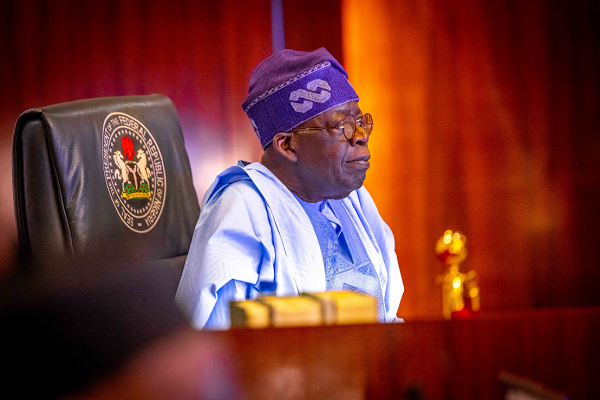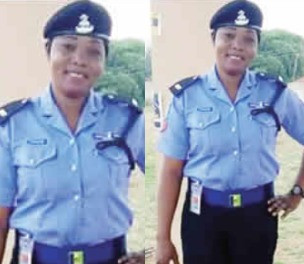President Tinubu: “Regional Bodies, Integration Key to Deepening Democracy in Africa”

..Demands sub-regional action to boost intra-African trade
In order to promote commerce and integration among African countries, President Bola Ahmed Tinubu has advocated for the formation of regional economic communities. This will help to speed development and improve democracy throughout the continent.
He claimed that Nigeria has discovered the hard way that increasing democracy is the best way to address subpar democratic governance.
In order to usher in an era of robust intra-African commerce, economic growth, and job creation, President Tinubu called for the revitalization of sub-regional blocs like the Economic Community of West African States (ECOWAS), East African Community (EAC), and Southern African Development Community (SADC) during the Summit on the State of Democracy in Africa on Wednesday in Abuja.
In order to promote commerce and integration among African countries, President Bola Ahmed Tinubu has advocated for the formation of regional economic communities. This will help to speed development and improve democracy throughout the continent.
He claimed that Nigeria has discovered the hard way that increasing democracy is the best way to address subpar democratic governance.
In order to usher in an era of robust intra-African commerce, economic growth, and job creation, President Tinubu called for the revitalization of sub-regional blocs like the Economic Community of West African States (ECOWAS), East African Community (EAC), and Southern African Development Community (SADC) during the Summit on the State of Democracy in Africa on Wednesday in Abuja.
President Tinubu stated that in order to successfully execute the groundbreaking AfCFTA and enable the free flow of people, products, and services, a resuscitated sub-regional cooperation is essential.
He acknowledged the “despair about democratic reversals” brought about by recent military takeovers, but he was upbeat about elections that had gone well in countries like Liberia, Kenya, Ghana, and Nigeria.
He said, “The tragedies of our nations and histories inspire our concern about the reversals of democratic governments, particularly in West Africa. That’s why we are alarmed by the military coups in Mali, Guinea Conakry, Burkina Faso, Niger Republic, and Gabon.”
The president however advocated discussions on empowering regional blocs to establish well-funded standby military forces “to help contain military adventurers and the rampaging waves of terrorism and religious extremism.”
In order to accomplish democratic consolidation, President Tinubu urged African leaders to uphold fundamental principles like term limits and to guarantee legitimate elections and independent institutions through the African Peer Review Mechanism (APRM).
“This Summit must discuss ways of making the APRM contribute to achieving good governance and democratic consolidation on the continent,” he stated.
Declaring that Africa can no longer be the “doormat of the world with street beggar economies”, President Tinubu called for concrete measures through reinvented regional bodies to boost trade, enhance security and entrench constitutional democracy for development and prosperity.
Earlier in his keynote address, Chief Olusegun Obasanjo, the former president of Nigeria, stated that reevaluating the democratic model that their colonial overlords imparted to the continent’s nations will address the multitude of issues facing African democracy.
According to him, leaders on the continent must collaborate to create a type of contextual democracy that considers historical lessons, tackles current issues, and places a premium on capable leadership, robust institutions, and a solid middle class—all of which should be reflections of Africa’s rich cultural legacy.
The former President who expressed concern about the growing discontent for democracy in the continent opined that the model that will work for Africa is one that takes into account the typical and predominant political system, and is “suitably and appropriately placed to serve the objectives of the African people”.
UN Deputy Secretary-General and Chair of the SDGs, Dr. Amina Mohammed, stated in her goodwill message that women and young people’s active engagement in politics and other decision-making processes will bolster democracy throughout the continent.
She called attention to the need for more investment in democratic institutions, adherence to accountability principles, and effective law enforcement throughout the continent, emphasizing how vital these are to the survival of democracy in Africa and beyond.
READ ALSO: Stewardship: Adamawa APC groups rates Tinubu’s…
On his part, the former President of the Nigerian Bar Association and member of the Board of Directors, Shehu Musa Yar’adua Foundation, Abubakar Mahmoud (SAN), said the focus of the summit, which is “the state of democracy in Africa”, aligns to the cornerstone of the Foundation’s mission and vision.
According to him, in order to address the unresolved problems and reshape democracy on the continent, attendees at the summit are expected to critically examine the African democratic model in light of the contemporary difficulties facing the continent.
Darren Walker, the president of the Ford Foundation, Dr. Ebrima Sall, the executive director of Trust Africa, and Prof. Gyimah Boadi, co-founder of Afrobarometer, were also in attendance.







